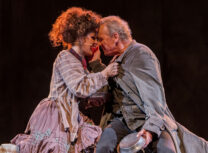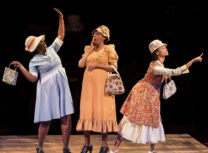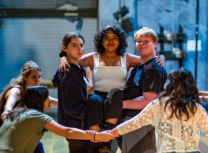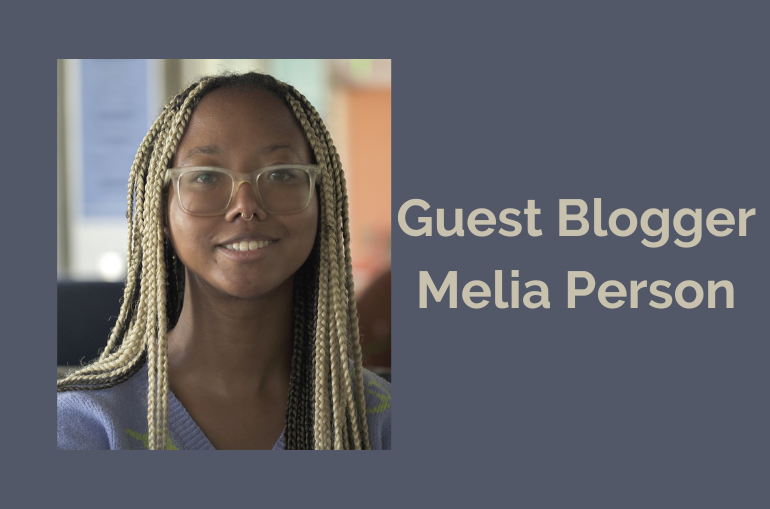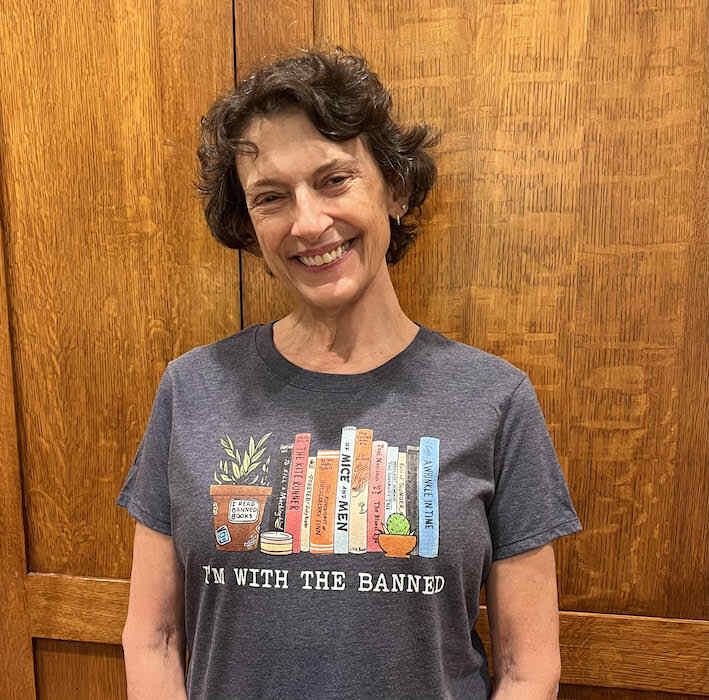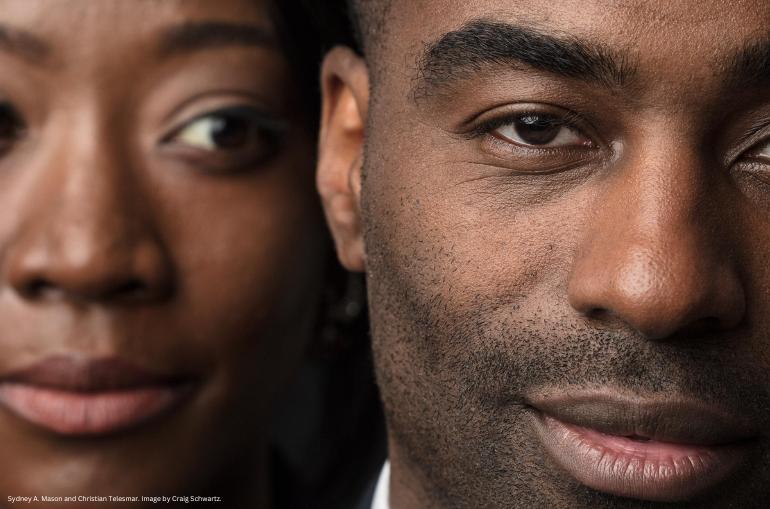Black History Month Feature: Julie Taiwo Oni
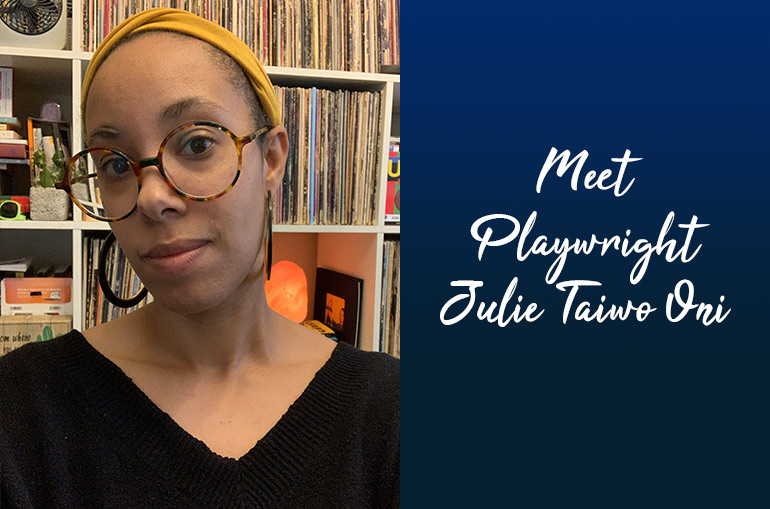
By A Noise Within
February 2, 2021
Julie Taiwo Oni is a Nigerian-American playwright and educator based in Los Angeles whose work recently appeared in the recent LA Escena festival with Noise Now. Kick off Black History Month with a celebration and exploration of her art and creative journey as a playwright.
How did you get started on your artistic journey?
I had my first taste of playwriting while studying creative writing as an undergrad at Pepperdine around a decade and a half ago. The word around campus was that advanced playwriting was intimidating because everyone had to perform roles in class, and as many people may know, most writers are not performers. We like to stay behind the scenes, thank you very much! However, my favorite writing professor Laura Shamas was teaching it, so I pushed past my shyness and enrolled. It was life-changing. I had been dabbling in so many other genres—poetry, fiction, nonfiction, journalism—but I came to realize that my voice was at its most authentic within the rhythms of dialogue. Nothing matches the amazing thrill and honor of crafting a character’s words and then seeing an actor breathe life into them. In a humbling full-circle of events, I will be teaching that advanced playwriting course at Pepperdine this spring.
How did you get to where you are now? What challenges did you face on the way?
Once I took that initial playwriting course and realized I’d found my vocation, I applied to grad school for playwriting. I ended up attending USC’s MFA in Dramatic Writing program headed by Velina Hasu Houston. I am indebted to her and that program for taking a chance on me, a young woman with just one play under my belt and no education in theatre. It was definitely challenging while I was there because I felt like I was playing catch-up since my classmates and most of the other people in the program were hardcore theatre people. But I pushed myself to do as much reading and writing as I could, and by the time I graduated, I’d dabbled in territory I would never have thought possible if it weren’t for pursuing the MFA. I spent my time there tossing words and styles across the page and stage, trying my darndest to become the next Suzan-Lori Parks or María Irene Fornés. I dare say those were my most audacious years.
Once I graduated, I was still trying to discover my voice and what I wanted to say amidst the struggle of simply trying to survive and pay my bills. I wasn’t making a living (or any money, for that matter) on plays, so my main focus was getting a job, since I had a lot of student loans from nearly a decade of private university to pay off. I don’t think I wrote a new play except a couple of ten-minute pieces for two or three years after USC. Instead, I was driving across LA teaching at various English language schools to make ends meet. I had no time or energy for creative inspiration.
I don’t regret taking a break from intensive writing, because this moment of separation from my work—and the countless hours on the freeway heading from one job to the next—also allowed me to think more about my mission as an artist. I had an epiphany: I discovered that I wanted to create plays that placed America in conversation with Africa in intimate character pieces.
How did you find ANW?
I got connected to you all through the LA Escena festival in collaboration with Playwrights’ Arena and UCLA’s Diversifying the Classics. I had worked with Jon Lawrence Rivera on a couple of projects in the past, and he asked if I’d be interested in doing this adaptation series. My play The Woodingle Puppet Show with Host Mr. C, as Constructed by Mr. Asinine with Calculations and Articulations of the Genius Sort is a contemporary adaptation of Miguel de Cervantes’ interlude The Marvellous Puppet Show. It’s set in current LA in an area I’ve called Woodingle—based on my current city of Inglewood—in a Black condo housing office, and it focuses on the competition for Black authenticity between a mixed woman and a Nigerian immigrant. It was lovely collaborating with everyone involved.
How does your culture, family background, and history influence your work?
I am Nigerian-American, and I consider that dichotomy to be at the heart of most of my playwriting. As I mentioned above, my mission is to explore the interaction between African and American cultures. This exploration is my own life journey, but it doesn’t always end up quite so explicitly integrated in my writing as it did in Woodingle. That being said, I am fascinated by the misconceptions that take place in America in regard to all people of the African diaspora—from Black Americans to native Africans to any others in between. My mission is to break through these misconceptions by confronting them head-on. As far as my family background beyond culture, I am also an identical twin, so the intimate diction among close kin is something that I explore quite a bit, as well as the language of the isolated or the othered.
Out of all your accomplishments in the arts, what are you most proud of?
I would have to say my journey to find an actor with albinism. I wrote a play called Chisel some years back that deals with the attacks on and executions of PWAs (persons with albinism) in Tanzania, and I had no idea when I began writing it that it would be an extremely challenging feat to find an actor who could step into the role. Once I’d written the play, I did two readings with a Black actor who was not a PWA, but it became really important to me to find an actor who actually fit this characteristic because it would help with polishing the writing of the story and also because it’s such a specific element of the play that any performance without a PWA actor loses its value. After about six years of searching, I finally got connected with Jordan White, a PWA actor living in Atlanta, and I was able to fly him out to do a reading of the play at Pepperdine. It was one of the most rewarding experiences of my career for sure, and Jordan and I have kept in touch. I dream of doing a full production with him some day.
Who is your favorite Black author/playwright/artist? What is your favorite work of theirs?
This is the most challenging question for me to answer! Years ago, I would have said Suzan-Lori Parks without a moment’s pause. So much of the writing I did in grad school was inspired by her inventiveness with language and style, and I still have the greatest admiration for her. However, as time has gone by and my mission has transitioned from one of playing with words and style to presenting authentic stories of otherness, I am increasingly drawn to August Wilson. The more that I study him and share his work with my students, the more I am indebted to him for paving the way for all Black playwrights working in the theatre today. Since a big part of my writing today is based in cultural research and authentic representation, I am inspired by his vision of Black artists telling our own stories and also preserving history and culture through the crafting of drama. Narrowing it down to my favorite play is nearly impossible, but at the moment I will say The Piano Lesson. There is so much heartbreak in the Charles family story, and Berniece’s final reconnection with their profound heirloom still gives me chills every time I read or see it. It’s my hope that my writing can become just as impactful in its presentation of culture and the depth of desire for ancestral connection that his characters carry.
If you want to learn more about Julie Taiwo Oni and her work, you can visit her website here.
